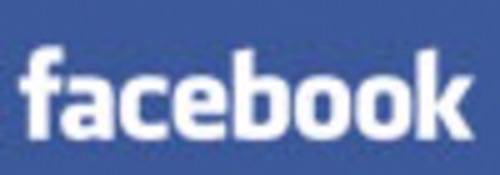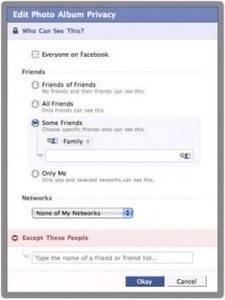In December when Facebook launched its friend lists feature, we theorized that it was a necessary first step that the network would need to take to attract the business social networking crowd. We also noted, however, that the the friend lists feature had no teeth without being tied to privacy controls. Today, Facebook announced that it would soon be updating privacy controls to make use of the friend lists feature, among other enhancements.

The new privacy features will increase the granular control that Facebook has been known for. Users will now have the option of showing private information, including photos, to only specific friends (entered one at a time or by utilizing a pre-made list), or to “friends of friends” (i.e., your friends and the people they are friends with — not unlike how LinkedIn works). So, for example, you could make sure that your boss never sees your party photos or that only your close friends have access to your cell phone number.
While going after the business networking crowd has never been an objective expressed overtly by the company, it does make sense. As Facebook’s core early audience — college students — grows up, they’ll need a more secure environment to network with colleagues and friends. Facebook is slowly positioning itself to be a place where both casual and business networking can take place at the same time, which means that rather than maintaining two accounts — one at Facebook and one at LinkedIn or Xing — users could stay at Facebook and use the tools they grew accustomed to in college.

The new privacy controls will reportedly be integrated with most features on the site, but we wonder if they’ll extend to Beacon messages…
Facebook further announced a new chat feature. The chat will be one-to-one, IM-style, and integrated with the inbox (users set “Away” will get messages via the inbox rather than the chat app). The chat application is proprietary — meaning you won’t be able to connect to it via third party clients just yet — and it won’t have API access. Future Jabber integration is a possibility, according to reports. The chat client will be included in the new privacy controls, according to VentureBeat, so you should theoretically be able to restrict who can chat with you based on lists.
Also today, new numbers from comScore indicate that while Facebook still trails MySpace by a hefty margin in the US, globally, the networks are neck-and-neck. In January, Facebook served 100.7 million uniques worldwide, while MySpace received 109.3 million visits. That makes Facebook just 8% smaller in terms of unique visitors worldwide. Facebook is already serving more visitors daily on average than MySpace — it became the leader in that category in November of last year.
Image from Facebook via CNET.
















